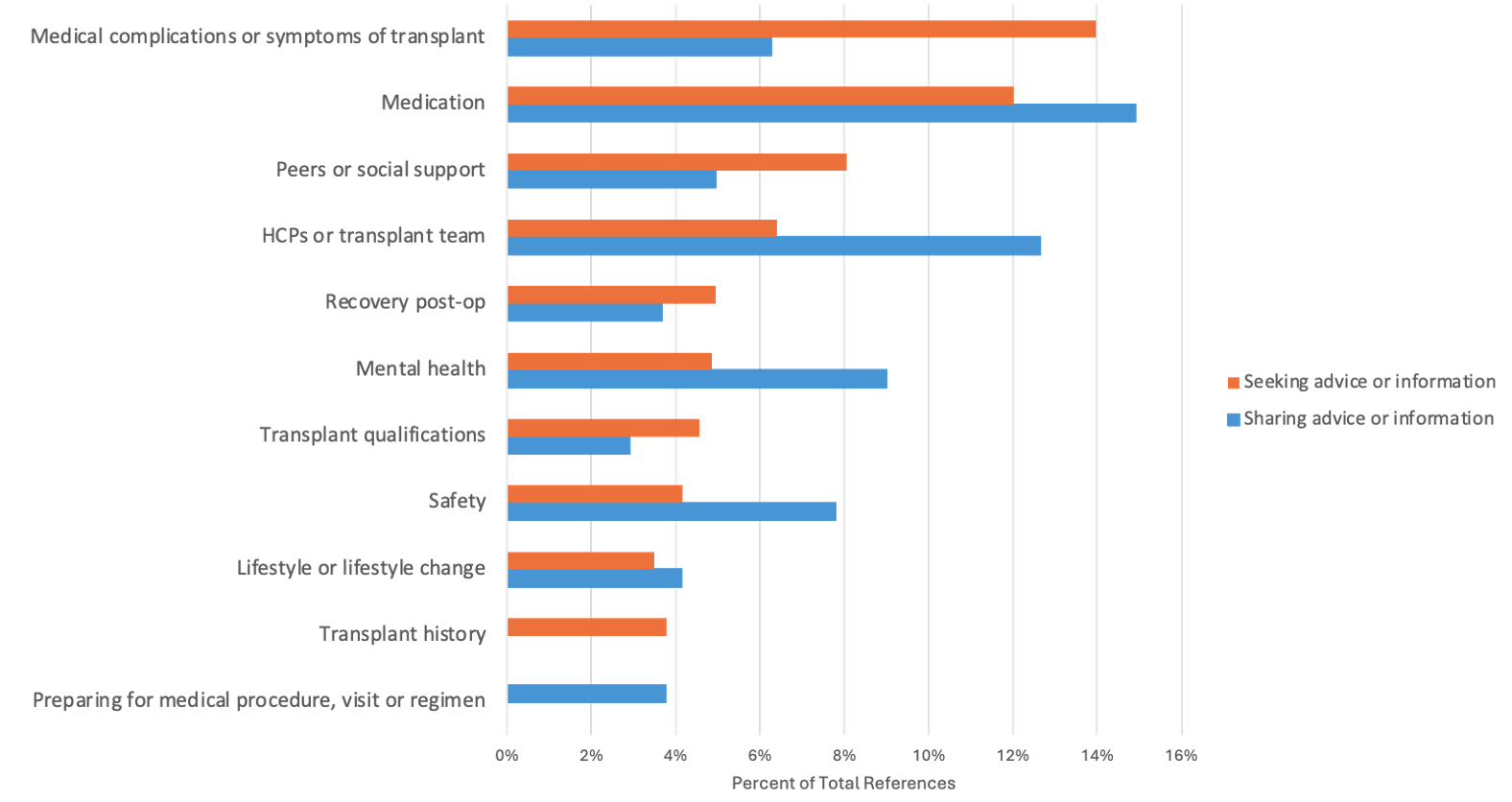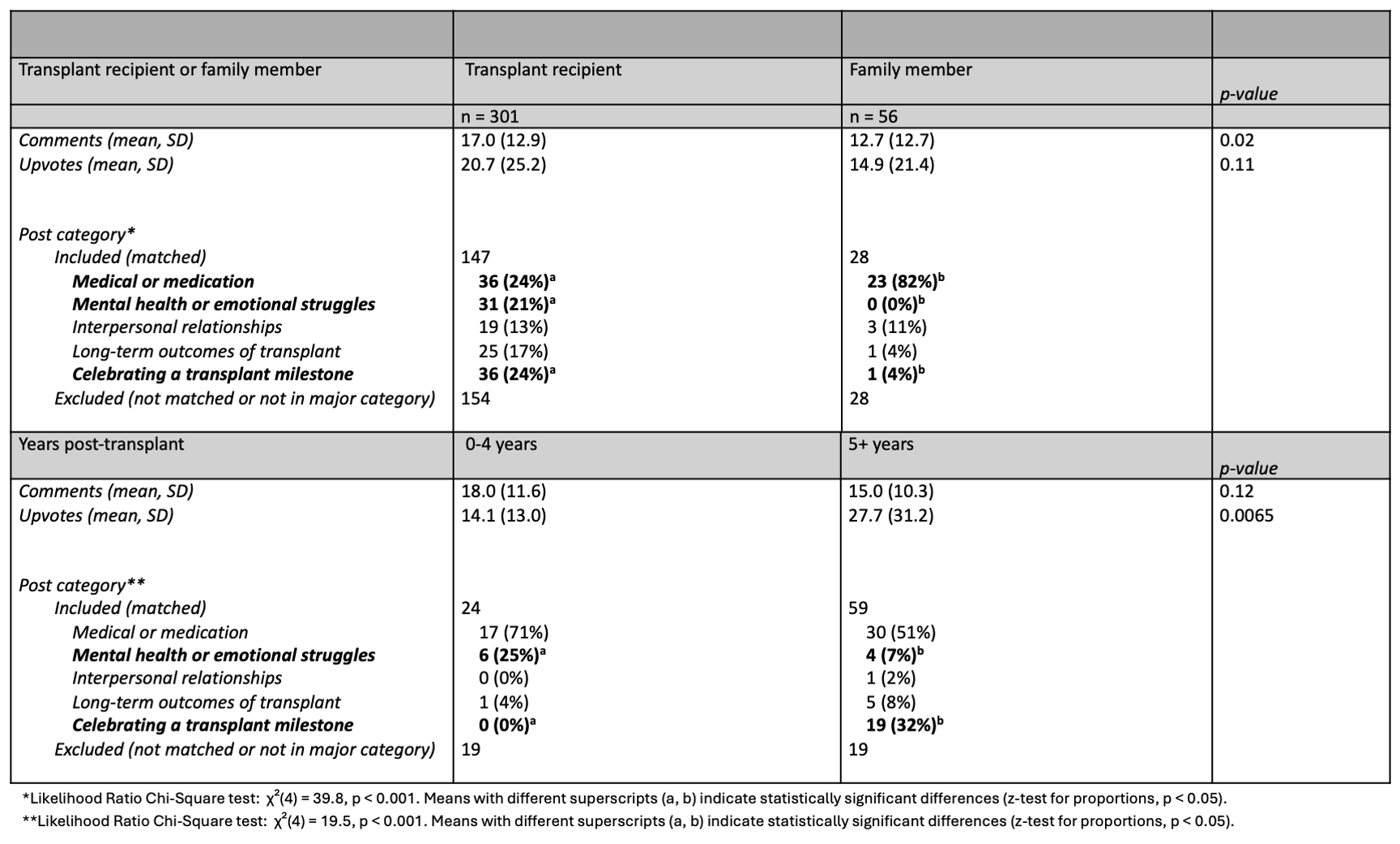
Evaluating patterns of social media use in children living with a solid organ transplant and their families
Irene Chen1,2, Christopher Yu2, Julie M. Robillard2,3, Tom Blydt-Hansen1,2.
1Pediatrics, University of British Columbia, Vancouver, BC, Canada; 2BC Children's & Women's Hospitals, Vancouver, BC, Canada; 3Neurology, University of British Columbia, Vancouver, BC, Canada
Introduction: Social media is widely used among adolescents and offers unique opportunities to support children with chronic illnesses by fostering peer connection, enhancing disease-specific knowledge, and improving psychosocial well-being. In pediatric solid organ transplant (SOT) recipients, digital tools have shown promise in promoting medication adherence and social connectedness. While caregivers and patients increasingly turn to social media for information and support, little is known about how pediatric SOT recipients and their families engage with these platforms. The objective of this study is to characterize how this population seeks and shares information and engages with other users on a transplant support group.
Methods: A comprehensive search of the Reddit support group r/transplant was performed. Publicly available posts and comments were included if they self-identified as a pediatric SOT recipient (0–24 years old) or a family member of one. An inductive content analysis was performed to identify key topics. Self-disclosed demographic information was used to explore differences in discussion topics and levels of engagement.
Results: A total of 357 posts and 5827 comments met inclusion criteria. Users most commonly discussed medical complications or symptoms, medication management, peer and social support, healthcare experiences, and post-transplant recovery (Figure 1). Family members predominantly focused on medical issues, while recipients addressed a broader range of topics, including mental health and personal milestones (Figure 2). Topics users engaged with varied by time since transplant: recipients 0–4 years post-transplant frequently discussed emotional and medical challenges, while those 5+ years post-transplant focused more on celebrating milestones in their transplant journey. No significant differences were observed based on self-disclosed gender, type of organ, or age at transplant. Overall, users described r/transplant as a valued source of community and connection.
Conclusions: Pediatric SOT recipients and their families use social media to seek information, share lived experiences, and foster peer support. Engagement patterns differ between recipients and their family members and years post-transplant, suggesting the potential for tailored online interventions to support evolving needs across the transplant journey.


CIHR Canada Graduate Scholarships Master's Program. BC Children's Hospital Research Institute BB&D Trainee Boost Award.
[1] Social media